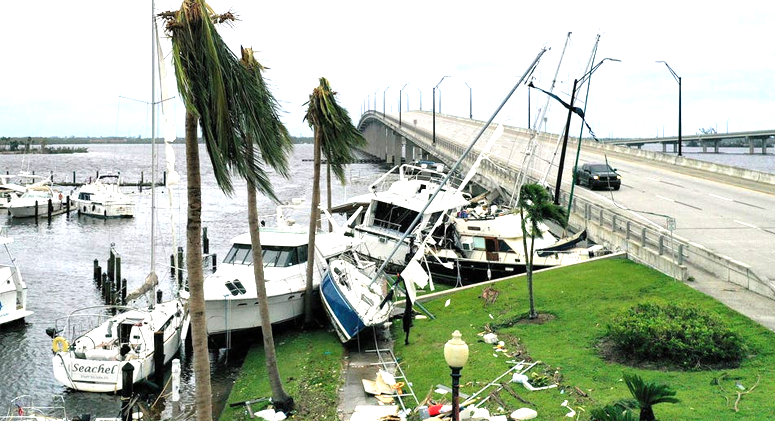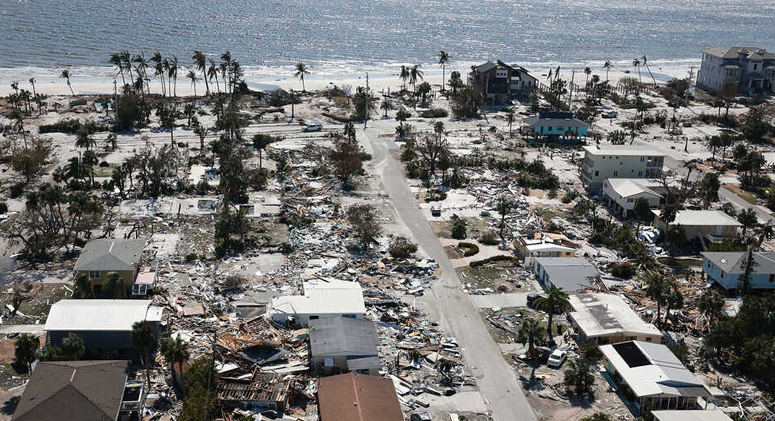
Florida’s legislature passed a bill that would create a state-backed reinsurance fund and attempt to ease litigation costs that have pushed a homeowners-insurance market already contending with monstrous storms toward the brink.
- Plan to ease insurance crisis failed in the normal session
- Seven carriers have become insolvent in the past two years
The bill passed in the Florida House of Representatives by a vote of 84 to 33 Wednesday afternoon after the Senate approved the legislation Tuesday, according to the Florida Senate’s website. The votes took place during a special session called by Governor Ron DeSantis in part to address the impact of Hurricane Ian on an insurance market that was already stumbling.
The bill would create a $1 billion reinsurance fund, reduce litigation costs and compel some customers to leave a state-created insurer.
The Florida Senate approved sweeping legislation that would overhaul the state’s property insurance system, which has struggled due to insolvencies, high costs and major storms.
The bill would create a $1 billion reinsurance fund, reduce litigation costs and compel some customers to leave a state-created insurer. It also would force insurers to respond more promptly to claims and increase state oversight of insurers’ conduct following hurricanes.

The Republican proposal was put forth during the GOP-led Legislature’s second special session this year aimed at stabilizing the state’s property insurance market.
Florida has struggled to control rising property insurance costs and hold onto insurers in a market where natural disasters weigh heavily on the cost of business.
The session comes after Hurricane Ian smashed into the southwest coast in late September and caused an estimated $40 billion to $70 billion in insured losses.
The bill, which builds on insurance legislation passed in May, is not expected to immediately lower rates for policyholders, which has drawn criticism from Democrats. Backers of the bill argue that it is meant to stabilize the market, which then could lower rates in the future.
“As we look forward, and as these reforms take place and work their way through the ratemaking process, I absolutely believe it will drive their costs down,” said Republican state Sen. Jim Boyd, who sponsored the bill. “While it might not happen today, I absolutely believe we will have rate relief as we move forward in the future.”
Average annual premiums have risen to more than $4,200 in Florida, which is triple the national average.
About 12% of homeowners in the state don’t have property insurance, compared to the national average of 5%, according to the Insurance Information Institute, a research organization funded by the insurance industry.
Senate Democrats filed a round of amendments to the bill and peppered Boyd with detailed questions about the state of the insurance market, insurance litigation and various elements of the complex proposal.
Republicans rejected the Democratic amendments following several hours of debate and eventually approved the legislation.
The insurance industry says litigation is partly to blame. Loopholes in Florida law, including fee multipliers that allow attorneys to collect higher fees for property insurance cases, have made Florida an excessively litigious state, a spokesman for the Insurance Information Institute has said.
The insurance industry has seen two straight years of net underwriting losses exceeding $1 billion each year in Florida. Six insurers have gone insolvent this year, while others are leaving the state.
The Florida Office of Insurance Regulation has said the state accounts for 76% of the nation’s homeowners’ insurance lawsuits but just 9% of all homeowners insurance claims.
The legislation would remove “one-way” attorney fees for property insurance, which require property insurers to pay the attorney fees of policyholders who successfully sue over claims, while shielding policyholders from paying insurers’ attorney fees when they lose.
Attorneys groups have argued that the insurance industry is at fault for refusing to pay out claims and that policyholders sue as a last resort. The alternative, arbitration, tilts in favor of insurance companies, they say.
by Yana Keller




